#triangle trade
Explore tagged Tumblr posts
Text
Hob Gadling’s Involvement in the Transatlantic Slave Trade between the 16th and 19th Century
The Fallacy of (clumsily written) Racial Reconciliation or: Is show/Hob really different from comics!Hob
I originally wrote this a while back as a reply to someone else’s post, but since we’ve been discussing “Men of Good Fortune” (comics) and “The Sound of Her Wings” (Netflix) in our community over the past weeks, I’ve expanded on a few points of my original thoughts.
This post discusses difficult topics, systemic racism, questions of social (in)justice and problematic angles in writing. If that’s not your thing, this is the exit sign…
A question that comes up quite frequently is the following:
Is show!Hob different from comics!Hob?
Hob’s conversation with Dream in 1789 (and not just 1789) in the show has been significantly altered (compared to the comics), and it makes it tempting to believe this somehow makes him different regarding the more problematic side of his character.
In the comics, we have a bit of dialogue in 1789 that shows how deeply involved in the slave trade Hob was: “I sort of started it,” said with a hint of, dare I say, pride? And then brushing off Dream’s concerns by saying, “It’s a living.” Twice.
(They changed this to, “It’s just how it’s done”, and a shrug in the show.)
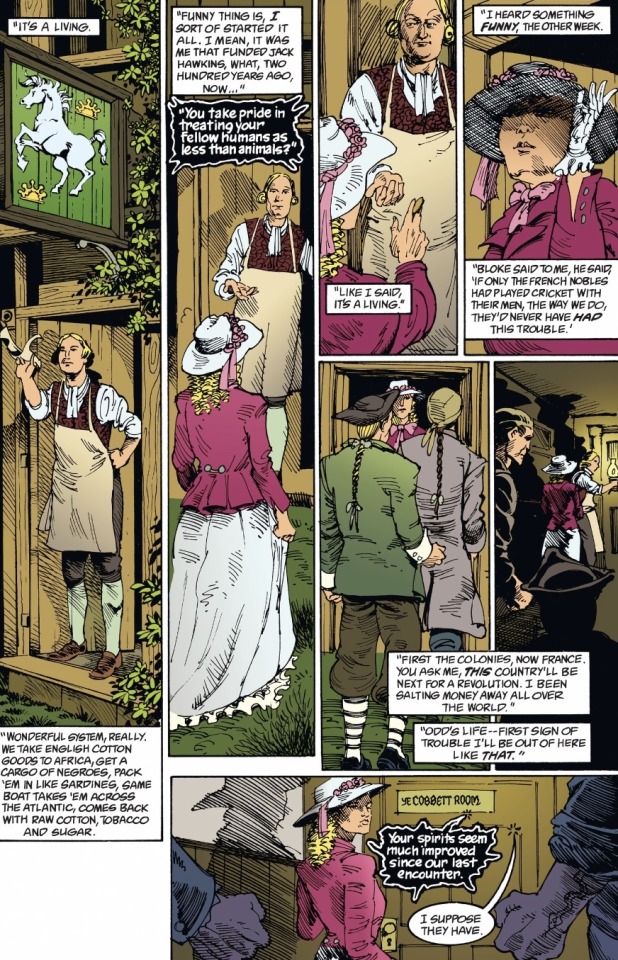
And it’s true: If this had been integrated into the show, it would have painted him in an even worse light. However, I personally think it was the wrong move to leave it out (Ferdinand Kingsley carefully voiced something along those lines as well btw). Because now the show pushed Hob’s whole involvement in the slave trade much more into the direction of, “Oopsie.”
Can we truly take leaving out the above dialogue as a hint that Hob might be a better person in the show? I’d like to really reflect on that--leaving out those comments can’t make him a better person. Even if we change his arc slightly and he “wasn’t that involved.” You’re involved, or you aren’t. There is no, “I tried a bit of slave trading and decided it wasn’t for me.” One could even argue it makes the angle of the show more problematic because it makes the slave trade a “little blip” in his timeline. Things like that can’t be a blip. I personally think the writers made a mistake here, but that’s obviously just my opinion.
If there wasn’t enough space in the show to expand on it (which I get for a side character), I feel they should have left out the slavery arc completely instead of keeping, but then minimising it (that might sound contradictory, but it only does if you don’t look at it too closely). It already didn't sit right with me 30 years ago to use slavery as a side note for showing a white person’s character development without properly examining the damage caused, and it still doesn't sit right with me now. It makes the plight of PoC a plot vehicle to centre white people’s guilt, and I always thought that’s a blind spot only white people have (and I’m white myself, to get that out of the road straightaway).
I’m not saying it couldn’t or shouldn’t have been used narratively. Or that you can’t show remorse and atonement/redemption for the most heinous acts (that’s not the same as forgiveness—I’ll get to that). Or that characters who have committed said acts are irredeemable. But it would have needed to be fleshed out instead of making it a comment in passing. Many books and movies do exactly that. But the point is that it’s never been fleshed out.
“But they had to shorten and streamline it…”—just no. Because to me (and ofc people are free to disagree), that exactly proves the point—centring the white guy while sidelining the people who suffer. I am a bit doubtful we’ll get anything remotely appropriate in the show after what we’ve already seen. Only time will tell, so I’m withholding final judgment at this point. Fact is: It is uncomfortable to watch for people with any sensitivity on the matter.
And yet, there is a lot of focus on leaving out Hob voicing his regret in 1889, since that (again) “would have painted him in a better light.”
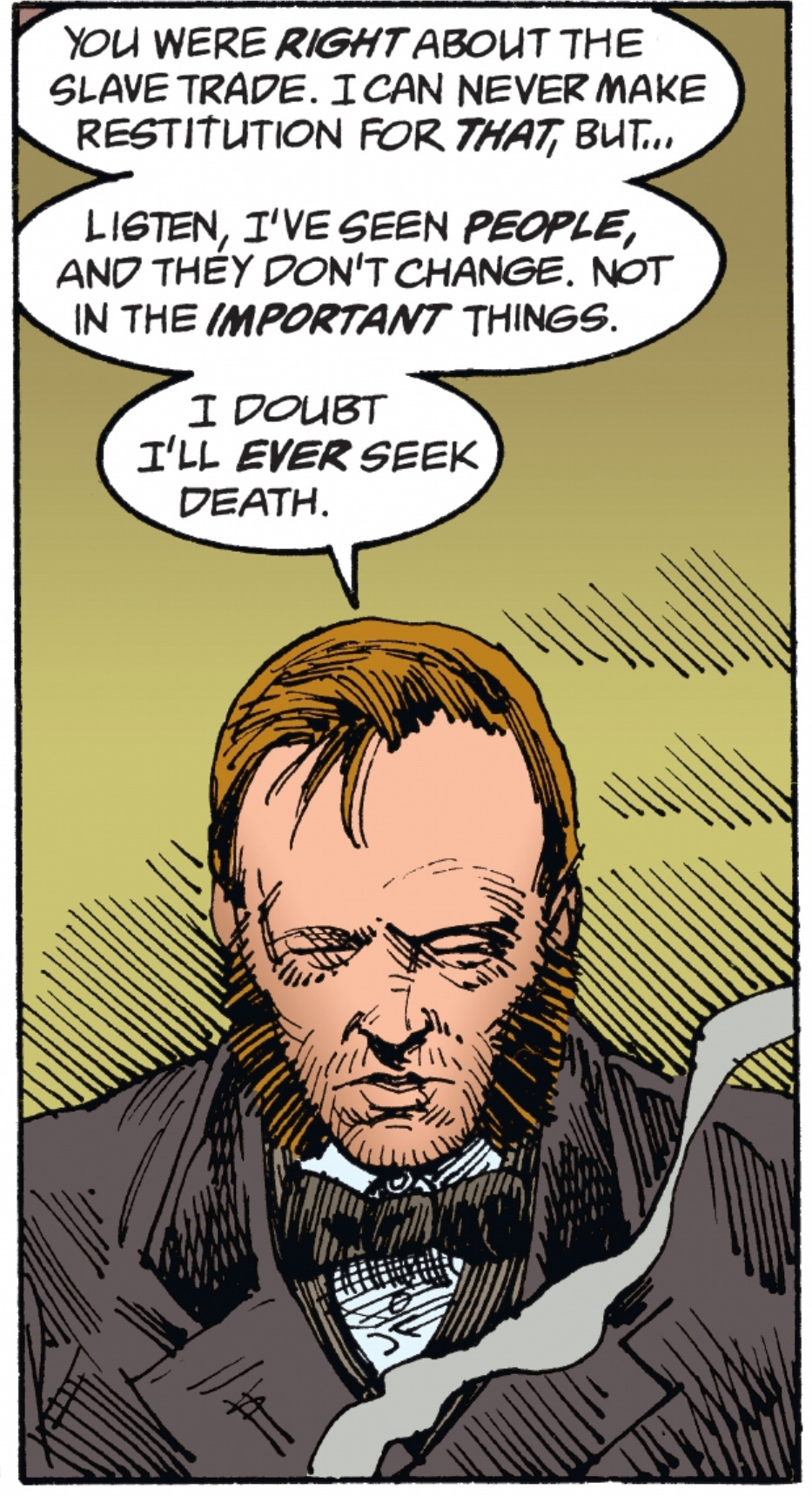
While simultaneously regularly failing to mention that he proudly proclaimed he “invented” the triangle trade. Can we really pick and choose his traits like that? Hob is a materialistic opportunist who also has some regrets. That doesn’t mean he can’t exist as a character, or that we’re not allowed to like him (morally grey characters are often the most compelling ones). We don’t need to sanitise him though, or try to erase his problematic traits from canon. The same goes for other characters (yes, I’m looking at you, Dream, and I’m sure we’ll get to that very soon—in fact, we’re possibly starting tomorrow 🫣). If we are talking about Hob’s remorse, we are probably mostly thinking about Sunday Mourning, so I need to bring in issue #73 at this point (this is your spoiler warning if you don’t want to read ahead).
The Fallacy of Racial Reconciliation
Very plainly:
A black woman is used as a vehicle to forgive Hob. And said black woman has been written by a white male author for that sole purpose without giving her anything else to do. I personally think NG got that wrong. It was clumsy and insensitive to POC, and I really hope they change this for the show. It’s a fact that he really wasn’t good with writing black female characters in the whole run—they all get fridged in one way or another, and he even admits it in the Sandman Companion. And then turns around and basically implies that it's all okay now because “nothing bad” happens to Gwen once Morpheus is dead. She is allowed to be a vehicle for the character development of a white guy though. It’s just really insensitive, and I sincerely hope they don't put it in the show this way. And I’m glad that we're seeing hints it might not happen--at least the casting in the show hints at it (from Lucienne, Death and Rose to very likely turning Carla into a white man—we already met Carl, and that’s who he is IMHO).
There is also the not so small fact that Hob is, even in his guilt and shame (shame is always about yourself, and that’s actually very in keeping with his character), not honest with Gwen. The thing about him basically inventing the triangle trade, which he so proudly proclaimed in 1789?
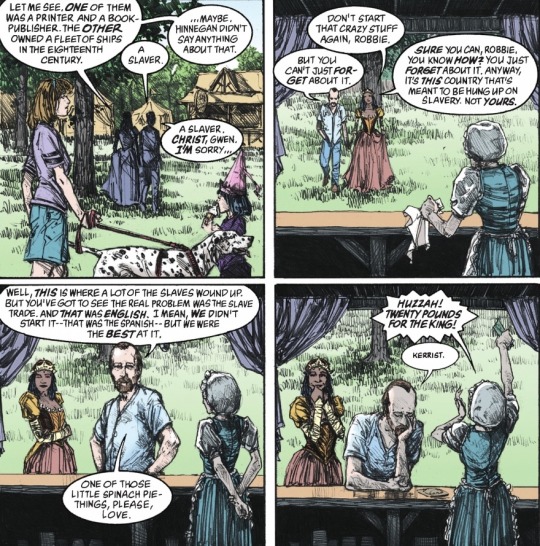
The English who were so good at it? The “Jack” Hawkins he talked about in 1789? That’s actually this dude:
And Hob funded him 200 years before 1789, and enabled Hawkins. Hob was involved in what became the transatlantic slave trade well before 1789–he already funded it when he had money in the 1500s.
He carried that mindset around with him for literal hundreds of years and saw nothing wrong with it until at least (! more about that in a sec) 1789. Dream had to rub his nose in it, otherwise it wouldn’t even have occurred to him (or did it, and he just chose to ignore it--see below).
Hob has been written as a stand-in for humanity, British Imperialism and England over the centuries—with all that entails.
So how honest is he with Gwen? And how long, even after 1789, was he still involved, even after abolition in England (Somerset vs. Stewart declared slavery unlawful in England in 1772, but that wasn't true for the rest of the British Empire. Buying and selling slaves was only made illegal in 1807, while owning slaves only became unlawful with the Abolition Act of 1833, and it took another year to buy out slave owners to actually make it happen)? Because there’s still this:
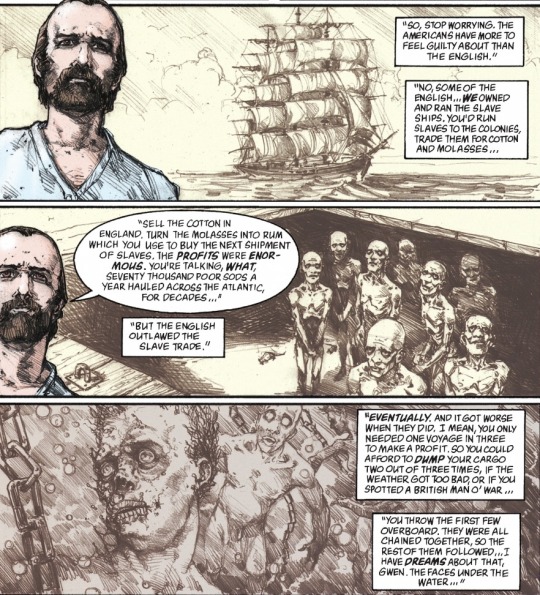
“It got worse when they did [outlaw the slave trade]. You only needed one voyage in three to make a profit. You could afford to dump your cargo if… you spotted a British Man o’ War.” How does he know? Why does he have these nightmares? We can take a guess…
That’s not someone who tried it for a couple of weeks and then thought, “Sorry, my bad.” That’s someone who has been opportunistically involved from the 1500s and potentially until after slavery was unlawful in England, which it already was when he talked to Dream in 1789. So does his feigned ignorance of, "It's a living/It's how it's done?" really hold? Especially if he potentially kept going, even after that convo with Dream? When I wrote "between the 16th and 19th Century" in the header, that's exactly what I meant...
Guilt and Shame
Yes, what we see above and in all the other panels is guilt and shame. And it reminded me of this:
youtube
And I’d encourage everyone to really listen to what Jasper has to say, and sit with the feelings it brings up. Because I can still remember watching this in the George Floyd aftermath for the first time, and how deeply uncomfortable it made me—because he’s right.
Black people/PoC do not need to forgive and absolve white people from their guilt. They can if they wish to, but that’s their choice, not ours. It’s not for white people to absolve other white people from their guilt around the oppression of PoC. And that’s why it could be argued it’s not for white people to write a black character to do that in their stead either (they can of course, but then they need to live with the fact that people will call them tone-deaf). It could also be argued it is something that cannot be forgiven retrospectively, and white people need to be okay with that. It can only be worked on in the present with a view to the future. And as Jasper also so rightly points out:
The guilt is not even helpful (at least Gwen has the right sentiment there, but it’s still falls incredibly flat over all), and shame only centres ourselves.
Forgiveness vs Redemption
Hob Gadling's regrets don't make everything he did forgivable. I think it actually does the story a disservice if that’s our main takeaway, because this is truly one of the bits of The Sandman that’s written in an extremely tone-deaf manner. NG isn’t the first author who did this, but we can take something good and helpful from this, and that’s engaging with these questions instead of brushing them under the carpet—because that’s what literary analysis is about.
It should be clear that I do see Hob Gadling as narratively important because I see him as a stand-in for humanity, and more specifically, English history. And there is really so much to learn from that.
Writers can get things narratively right but still be emotionally tone-deaf due to their own blind-spots. We don’t need to assume malice, but we also don’t need to leave it entirely unchallenged.
And because of that, we can certainly see Hob as someone who has to live with his conscience, and the consequences of his actions, for the rest of his life and struggles with that (as he should). And maybe we can see him as someone who is now, finally, trying to do the work. Because that is what atonement and redemption actually mean:
Taking action to rectify past wrongs. Actively working against the harm once caused, and preventing it from ever happening again. And I hope that’s what he does, and the signs are there (but there are also still signs that he values covering up his immortality higher than e.g. telling Gwen the truth. And we can find a million excuses for why that is, but ultimately, none of them truly matter).
However, it is not the same as forgiveness from the people we have wronged. Forgiveness is not a prerequisite to redemption, although it can be a part of it if the person who has been wronged chooses to extend it. But the people Hob wronged are dead, while their descendants still need to live with the pain people like Hob caused to this very day. So while I don’t see him as irredeemable, I don’t think he needs to, or even can, be forgiven—especially not by black people (unless they choose to. But it is also fine if they don’t, and again, we need to be okay with that). And we could say, “But Gwen chose to.” To that, I say:
I wonder what Gwen would have said if he had been truly honest with her (which he wasn’t, see below panels). That wouldn’t have been an embrace is my guess…
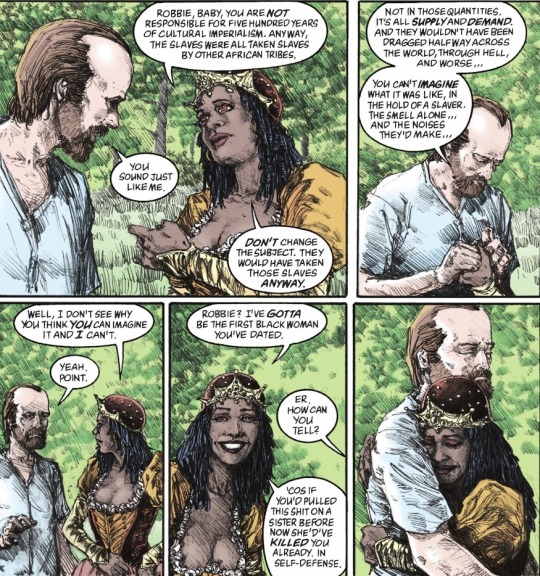
#the sandman#sandman#dream of the endless#hob gadling#morpheus#the sandman netflix#the sandman comics#sandman meta#men of good fortune#the sound of her wings#sunday mourning#Gwen sandman#cw racism#transatlantic slave trade#triangle trade#queue
28 notes
·
View notes
Text
The transatlantic slave trade resulted in a new form of slavery, though. Especially in North America. I cannot emphasize enough that it was *different* because it was seen as absolutely necessary in a nation that was trying to found itself on a principle of universal human equality and human rights.
Modern racism is not natural; it didn't exist before colonialism and the TA slave trade. It grew out of the need to defend slavery against abolitionists in the Americas.
Slavery in other periods and other nations was not, e.g., heritable, and it was absolutely not racialized. Slaves used to come from defeated enemies, "uncivilized" enemies, etc. But often times those people could be manumitted and become citizens.
In the U.S. it became illegal in many states for free Black people to live, for slaveholders to manumit their slaves, precisely because the idea that a Black human could live just like other humans was antithetical to the culture of enslavement in the American South.
You don't have to take my word for it. There are books and documentaries (the old "RAce: the Power of an Illusion") is probably available through your public library or your school library and parts of it are on YT.
Don't sleep on this. It's why the U.S. is so racist. We got rid of the slavery, but never actively fought the ideology that supported it.
Why do so many Americans, and non-Americans too, seem to think that slavery was a specifically American thing? Like, I presume that most people know that it wasn’t, but I hear so much discussion of American slavery and its impact, and so little of any other kind. It also makes slavery look like a strictly white-slaver black-slave dynamic, which, again, I presume most people know it isn’t, but nobody talks about it as much as about American-type slavery. The Roman slave market, which existed for centuries and had slaves of all races, the Korean slave market, which was gigantic, the Ottoman slave market, in which North Africans and Middle Easterners enslaved people of different races, including Europeans. My point being that slavery has existed for centuries, and has heavily impacted our whole world, and yet some people seem to believe that slavery existed only in an American-type way. At the moment, there are more slaves in the world than ever before, and yes, most of them are from Third World countries, but nobody talks of real-time slavery either. Not as much as of past American slavery anyway. I genuinely wanna know how that came to be.
210 notes
·
View notes
Text

Thinking about that one joke in the Book of Bill that implied Bill might be the biological father of the Flynn kids. Thinking about how Linda Flynn had a secret career as a famous astrophysicist at one point. Thinking about how we don’t know exactly what Bill was doing in the 90s, and how he seems to want to skim over that part of his life, after Ford broke up with him for good but before the twins showed up in Gravity Falls.
Thinking about how Bill frequently hung out with famous musicians. Thinking about Linda, a brilliant young woman fresh off a bizarre pop star career, wanting to make a name for herself that ISN’T Lindana, might have found a new direction with an old friend (before he showed her his true colors.)
Thinking about Bill, fresh off a devastating breakup, trying again one more time to get SOMEONE on Earth to make him a portal. Trying to make the plan WORK. Trying to get a home for his friends in the face of a home dimension that was being destroyed (again). Having someone who’s COMPLETELY DIFFERENT from the man he was obsessed with, but who was no less brilliant and no less capable. (But, unfortunately for him, MUCH less gullible.)
Thinking about how Linda doesn’t want people to know about her former career as a famous astrophysicist. How she keeps this secret, even better than she did her past as Lindana. How she keeps the lid on this even TIGHTER. How she’s almost bitter about it. As if something HAPPENED.
I’m not saying Bill Cipher WAS Linda’s partner of at least five years, even going so far as to start a family with her before she saw his true colors and filed some sort of Uber-effective inter-dimensional restraining order against him, one-upping him so hard that he doesn’t even wanna think about it, but. Holy shit. Imagine
#book of bill#phineas and ferb#gravity falls#linda flynn fletcher#bill cipher#Linda Cipher AU#artists on tumblr#fanart#I know it’s a joke I KNOW IT’S A JOKE#BUT WHO AM I IF NOT THE CRACK TAKEN SERIOUSLY PERSON#ALSO THE TIMELINES MATCH UP AND THAT DRIVES ME INSANE#Also you can’t tell me Bill Cipher being Candace’s dad wouldn’t explain some things about her#also like#I wanna explore this from a perspective that gives Linda MORE agency you know?#because that’s WAY more fascinating to me than ‘’haha Bill fucked Phineas’s mom’’#Linda gets to stand with Ford and Charlene in the ‘’divorced an evil triangle man’’ corner trading stories and sipping punch#anyway uhhh I have a lot more art of this so get ready#looney mooney rants#mooneyart#looney mooney art#long post
564 notes
·
View notes
Text


#seadra#folks really seem to like these super up-close sniffer angles#sniffer#i slightly forget seadra exists sometimes? it's a weird middle ground of horsea and kingdra. whereas kingdra sucks#because it's a trade evo‚ and horsea is vaguely cute#seadra is Just Here. with its triangle ass snout#is that a snout?? i don't. i don't know if it's a snout. it's like a birdo mouth. you know birdo
44 notes
·
View notes
Link
Chapters: 3/3 Relationships: Bill Cipher/Ford Pines, Bill Cipher & His Parents Characters: Bill Cipher, Bill Cipher's Mother, Bill Cipher's Father, Axolotl (Gravity Falls), Ford Pines Summary:
Fussy eater, baby Billy / wouldn't drink unless it's silly.
In Euclydia, everything was perfect. Bill Cipher wasn't born the kind of perfect they were looking for. Seeing the stars up above him in a world where Up Above Him didn't exist meant he was in for a lifetime of doctors, medicine, and keeping-quiet-or-else. But what if he could show everybody what they were missing? The stars were Up there. He knew they were. Maybe he could make everyone else know it, too.
Just fit in just fit in just fit in just fit in j
(In which Bill 1.) learns that doctors are talent-suppressing authoritarian jerks, 2.) accidentally commits genocide, and 3.) takes the train to Denial Town in the Theraprism, with a special cameo from a certain Sixer.)
#bill cipher#the book of bill#gravity falls#bill cipher fic#gravity falls fic#the year is 2024 and i'm writing triangle angst#and i wouldn't trade it for the world#billford#just a splash of it
25 notes
·
View notes
Text
From an entirely human motivation level, that leads me personally to the conclusion that since no one helped Hob when he was at his lowest... Why should he care about anyone else if no one cared about him?
Adding to this, we know from a fair bit of study that starvation alters the brain. Some of those alterations basically make a person less compassionate.
Apathy, Withdrawal, Social Isolation
Listlessness, Depression
Anxiety, Irritability
Mood fluctuations, intense and negative emotional reactions
Impaired concentration, problem solving and comprehension
Increased rigidity, obsessional thinking
Feeling more critical of others
Loss of sense of humour
Feelings of social inadequacy
Neglect of personal hygiene
Strained relationships.
We know much of the above does apply to Hob if only causally - his social isolation and neglect are WHY he's starving. We don't know if he gets sick or not, we just know it won't kill him, but another major aspect of starvation is susceptibility to disease.
Depending on just how far down Hob could actually get, and how long it takes him to build back up from it, whether or not he CAN take on permanent changes to his brain from his experiences (he must be able to at least somewhat, or he wouldn't remember anything at all, yeah?), it's quite possible the reason Hob fails at basic human decency for many decades after starving for as many decades is that his brain literally didn't have the capacity for it.
By the time he'd built his brain back up again, his entire support system was entwined with the triangle trade. Another thing we know from plenty of studies is that people will stay in very, very bad places, and even justify outright atrocities if the alternative is giving up their established support system. Humans are very thoroughly evolved to do whatever we have to to keep our social support systems intact.
Dream indirectly threatened Hob with the one thing that could serve as a total override to that support system. Dream's approval was the only longer-term support that mattered to Hob more than getting along in the life he'd built.
ADHD or no, Hob might well have gotten sucked into the Triangle Trade just from the context of being a sailor - we've more than proven that pretty much anybody can get sucked into apathy towards oppression if they're soaking in it like a frog in a slowly boiling pot of water.
But I think an era of starvation made it much, much harder to avoid in Hob's case.
Headcanon: ADHD Hob and Rejection Sensitivity Dysphoria
So I went down the rabbithole on ADHD and rejection sensitivity dysphoria (and found this lecture that legit made me tear up if you have or think you have ADHD, go listen to it here) and it got me thinking, as everything is wont to do, about Hob Gadling and how if he had ADHD, which I think there's lots of fun in-text hints at that at least allow that interpretation, what are some other ways that could manifest besides his ebullient and never-ending love of life in all its endless variety?
So as sufferers of ADHD know, it's not all fun and games. The flip side of living with a dopamine-starved brain that's always seeking out new experiences and seeing the world through that lens is that other emotions slam us hard too, like rejection sensitivity dysphoria aka, "the most minor criticism can feel like an actual knife in the chest, no I don't mean mildly bummed out, I mean full on fight-or-flight brain meltdown because someone told you a comma is in the wrong place in your manuscript (not that I'm speaking from personal experience yes it's that dumb)".
ANYWAY, so I'm thinking about Hob and RSD and specifically 1789.
Specifically the line, "It's just how it's done," referring to horrific practice of human trafficking and how Hob basically shrugs while, to his minor credit, looking suddenly uncomfortable and guilty, about the fact he actively profits from this industry, and the way he cringes in on himself when called out kinda seems to indicate that he knows it's a vile practice and isn't super comfortable with being reminded of his fact by someone he respects, like Dream.
A couple notes on that little exchange between Hob and Dream:
1 ) The face Ferdinand Kingsley-as-Hob makes in that moment is absolute textbook adult ADHD rejection sensitivity dysphoria. Namely, the point where you know criticism hits you like a knife in the heart, particularly from people you respect, and you just have to cover that flinch of literal physical pain with a careful poker face.
The way Hob's tone suddenly goes cold and with his very genteel, received-pronunciation manners he levels Dream with perhaps the closest he's ever come at this point to lashing out, "You're giving me advice...?"
I'm not saying that canonically it's RSD, or that neurotypical people don't suffer pain and disappointment when receiving disapproval, but to my eyes at least, Ferdie Hob takes Dream's comment very seriously, much more so than the comic counterpart did (who need multiple nudges before he even realized what Dream was trying to tell him about getting out of the shipping business and still seemed a bit clueless about why Dream would want that or care by the end).
2 ) Going into proper headcanon territory, I personally chart Hob's journey from destitute to wealthy slave trader as the product of someone who stopped giving a shit about others after everything he suffered in the 1600s. To be perfectly clear, this is not a fucking excuse for it, it's an examination of motives.
Because technically, after everything Hob suffered in the 1600s, he could have emerged with more empathy for the plight of others. But clearly that didn't happen. From an entirely human motivation level, that leads me personally to the conclusion that since no one helped Hob when he was at his lowest (not even Dream, though I dearly wish it was otherwise and wrote extensively on what would have happened if he had) that led him to the belief, put simply, that fuck the world so long as he got his. Why should he care about anyone else if no one cared about him?
But to go back to the topic of this essay, RSD, there's an additional element to that theory on why and how Hob leaned into not giving a shit about others, and that missing factor from what's described above is the element of everyone is doing it. Specifically worded as, "It's just how it's done."
Another really fascinating lecture I listened to on ADHD talked about how the most common trauma reaction ADHDers have to their sense of rejection, shame, and guilt that comes the way our brains react to the world is by hiding. And that also got me thinking about 1789 Hob in this context.
Because Hob as we see him in 1589 is loud in his happiness. He's sitting there, bold as brass in the middle of the White Horse, showing off his wealth with a banquet, loudly declaiming about how he pretended to be his own son twice, worked in the Tudor shipyards (what would have been 50+ years before) and just how he spent the last 100 years working his way up to his knighthood. The man does not have an ounce of caution in him. But, he is also by far the happiest we ever see Hob (up until Dream ditches him in the middle of their date).
This is important because to my eyes, Hob is living openly and unashamed and with only the barest hint of caution typified by pretending to be his own son every couple decades. The way he describes his last 100 years sounds like an ADHD dream, basically getting a boat load of money when Caxton's printing press (basically the first tech startup unicorn of the modern era) and then running around wherever his interests took him where he also made money hand over fist, kept climbing, and eventually reached the point where he could purchase the acclaim and regard of a member of the (albeit minor) nobility. All of this after being born a peasant. That's just validation and money and prestige and getting to pursue your special interest and live as your authentic self all over the place. And I do mean authentic, Hob doesn't even seem particularly worried about talking openly in the White Horse about being 200+ years old, a strong case could be made that he's not that careful in his personal life either.
So anyway, Hob has this amazing century literally followed by the worst century imaginable, filled with the sort of horrors that can tear a man's soul asunder. Losing his family, his beloved wife in childbirth with their new baby, his adult son, his home, his money, everything he spent a century building. His title and name are gone too because of the nature of how he lost it with the accusation of witch craft, which also means he can't just fake being his own son again to get it all back because they're explicitly going to notice that this time.
And how did this all happen? Because Hob got noticed. He lived there 40 years, overconfident is his own words. Which is a wild thing to say about a bunch of witch hunters showing up at his door! He blames himself for being drowned as a witch. On the one hand, I imagine he has to think that way because otherwise he has to admit to the sheer brutal randomness of life, so in a way he's trying to take control of the narrative by blaming himself.
But it also smacks of ADHD again because ADHDers very commonly shift the blame onto themselves after years of their unique nervous system response making them a round peg in a square hole of wider society. We learn over and over that the mistakes we make are our fault, because of "laziness" or "apathy" which isn't apathy at all but deep agony over our inability to accomplish tasks in a neurotypical way without the support we need, but I digress. But it sure sounds like Hob may have been paralyzed by grief for literal decades and then blamed himself for not getting the mental spoons together in that context to move on and reinvent his life after losing his wife and child. Which would be a very ADHD thing to do.
So after this absolutely brutal smackdown by reality for living too openly, too loud, too ADHD, getting paralyzed by the powerful emotions he felt (if we follow the headcanon) over the grief and loss in his life, what is Hob's next step?
Hiding.
Blending in.
Not rocking the boat.
And again, not excusing it, there's plenty of other industries he could have gone into to blend in that didn't involve human trafficking. That said, if he went to sea, which we know Hob did on many occasions from the comic, then.... well, there's the sort-of pride with which Hob announces he's making his fortune these days in the "shipping business", as if he's expecting Dream's approval.
That to me, reads a bit like the people pleaser/social chameleon aspect of ADHD. Hob is expecting to be praised for being successful by Dream the way he would likely be braised by his peers in the shipping business or among the wealthy privileged men of England. He's so steeped in that world now that he's clearly taken aback when Dream takes the (at the time more radical but not uncommon) stance of, "This is wrong."
And Hob knew it. But he was blending in. He was going along with how things are done. He wasn't rocking the boat. He has other hints at trauma responses too, "salting money around the world" in case there's political upheaval, for example. This is not the loud, boisterous Sir Robert Gadlen untouched by loss or trauma. He has been humbled and tempered and, indeed, made afraid by what happened to him.
This sort of wild swing towards protectiveness? Again, also ADHD. As the lecturer I linked first noted, ADHDers are textbook defenders. They are always defending themselves from the world that can suddenly, unexpectedly, plant a knife in their heart because of a perceived rejection. From a world that wants their brain to work in a way it doesn't, so they have to come up with myriad painful coping mechanisms to fit in, blend in, mask, and function. Hob was forced to protect himself after the 1600s, so he did, with money, and with not caring about other people, and with insulating himself from privilege, and becoming a social chameleon.
1589 Hob tries to earn back Dream's interest, but he doesn't fawn. Dream shows interest in Shaxberd and Hob, already starting to get irritated, tells him no, Shaxberd is crap.
And you can tell in 1789 that Hob is thinking about that day again when he gets Dream's disapproval, because who does he reference? That lad, Will Shaxberd. He's fearing rejection and abandonment again, or at least it's crossed his mind after Dream's admonishment. But this time, Hob is fawning more, very nearly flirting. He's trying to play the game better this time, trying to keep Dream's interest, social chameleoning the subject onto safer topics, things he thinks will interest Dream, as Shaxberd so clearly did, so let's talk about him if that's what you care about. Again, another ADHD social chameleon, people pleaser aspect. We are nervous empaths, we are constantly picking up a bazillion signals both real and imagined. And we're so fucking terrified of that RSD knife in the heart, we become people pleasers to avoid it. After the shipping business brag fell through, Hob pivots to talking about Dream and what, in his experience, Dream seems to like and talk about favorably.
So anyway, many many ADHD-esque rambling words later, there's a few more little details I'd add to the list of "possible ADHD behavior, not just the fun parts" for Hob Gadling. Is it canon? Maybe not. But it does make for a great headcanon, in my opinion.
305 notes
·
View notes
Text


1993's The Death of Superman Trade Paperback cover by Jon Bogdanove and Dennis Janke. Source
#The Death of Superman#Superman#TPB#DC#dc comics#fallen hero#Lois Lane#iconic#cool cover art#1990s#90s#90's#cover#comics#cool comic art#art#post crisis#woah#the man of steel#clark kent#trade paperback#jon bogdanove#legendary storyline#powerful imagery#death of a superhero#The Triangle Era#death of superman#DC Comics of the 1990s#1990s comics#superman comics
19 notes
·
View notes
Text
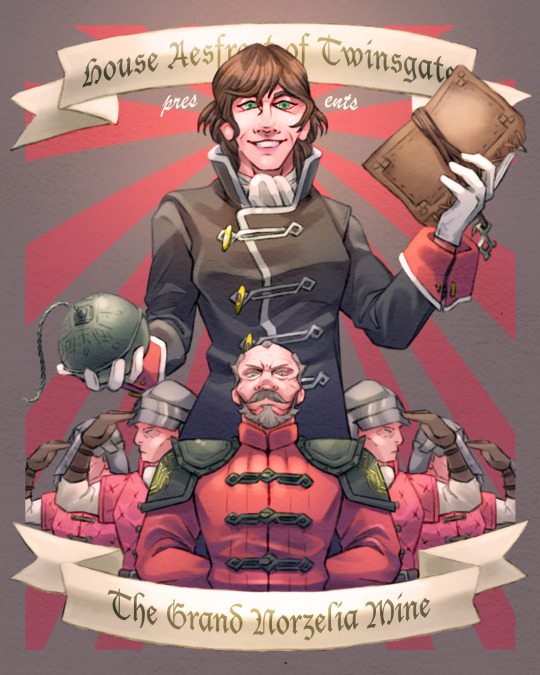
Art trade w/ @pieadvisor
Going into this trade, I told myself I was going to specifically NOT do the Triangle Strategy option, but it said "Dragan" and "mines" so here we are.
#Triangle Strategy#Dragan Aesfrost#Svarog Aesfrost#I told myself I'd do an Octopath option because I figured you'd enjoy it much better#but this is what the idea allowed me to do#I'm sorry pie#I wasn't strong enough#art trade
49 notes
·
View notes
Text
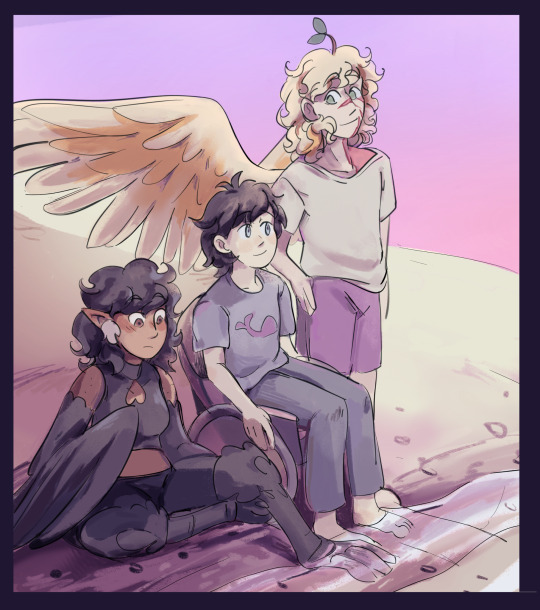
Here is my side of the art trade! @sunflowers-and-scales
I do not draw more than 2 characters in one scene often so this was a fun challenge to pose them all to full body. I made them hang out on the beach.
#I knew i wanted somewhat of a triangle composition#my art#art trade#I tried to make them seem 3d.. that skill is a work in progress still#i need to study how to do wings more
10 notes
·
View notes
Text

Source: Avatar: The Legend of Korra [2014]
#avatar#legend of korra#mako#korra#asami#salute#awkward#moron#listen I love plot progression as much as the next gal#but I wouldn't trade all the plot progression in the world for these scenes of Mako being an awkward dumbass#people said the love triangle was the worst thing ever but I actually fucking loved it precisely for moments like these
9 notes
·
View notes
Text
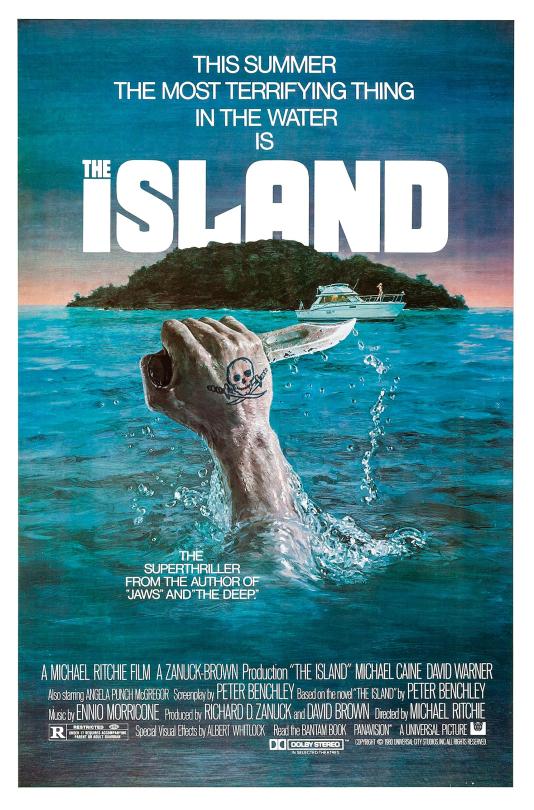


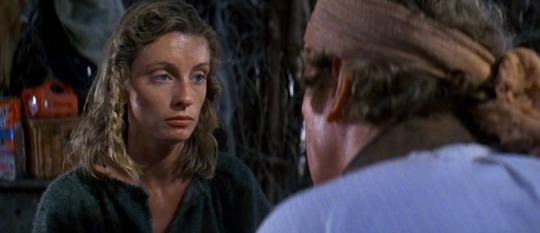
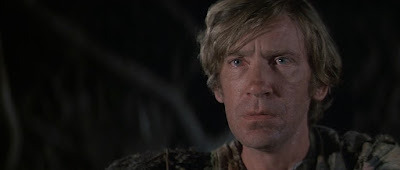
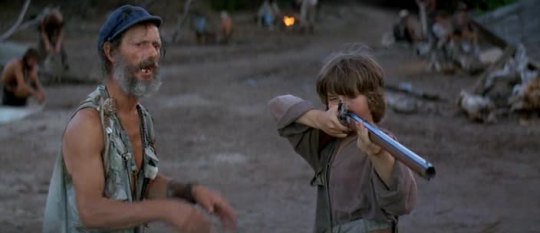
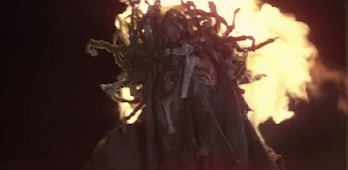
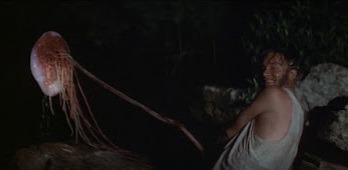
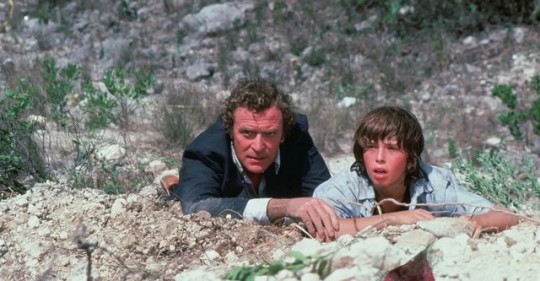
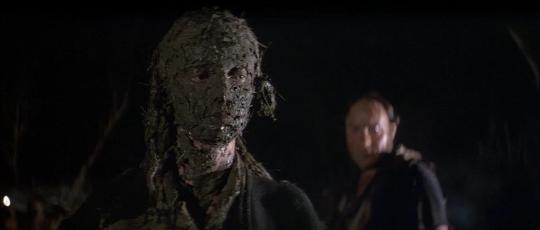
The Island (1980)
"Are you wise enough to feel privileged? You and I are the only living men ever to see what you see now."
"A bunch of arseholes playing Long John fucking Silver?"
"Hardly, dear boy. Living history: an anthropologist's dream. You're witnessing the seventeenth century."
#the island#1980#peter benchley#michael ritchie#michael caine#david warner#angela punch mcgregor#frank middlemass#don henderson#dudley sutton#colin jeavons#jeffrey frank#brad sullivan#zakes mokae#ricky rincon#susan bredhoff#ennio morricone#hot mess of a film. the producers paid Benchley a record breaking 2.5 million for the rights to his novel‚ gave him refusal rights on cast#and location‚ a cut of the gross and even a percentage of soundtrack sales. they were expecting another Jaws megahit and boy did they#miscalculate. a strange and difficult to categorize movie: it opens on strong gore horror but quickly settles into adventure film mode as#Caine's journalist (and son) investigate missing boats in the Bermuda triangle and stumble across an island of pirate descendants still#plying their cutthroat trade. that these pirates are played by some of the finest Brit character actors of the era is one of the chief#positives here: my boy Davey W is their leader‚ Colin Jeavons their legal expert and mystic scribe‚ Dudley Sutton their medic and Don#Henderson one of their most fierce buccaneers. that's all a lot of fun for your average old tv freak (guilty) but for such a resoundingly#weird set up and (let's be honest) silly idea‚ this is strangely unenthusiastic. Warner in particular is badly served‚ his chief antagonist#never afforded the fearsome stature and moments of menace that the character is so clearly calling out for. Angela P M fares little better#with her character‚ after an astounding entrance completely caked in mud and looking entirely inhuman‚ gradually fading into the background#it's... idk. problems in scripting‚ chiefly‚ and in the rather flat direction of Ritchie (most known for his work in broad comedy). made#a good deal weirder or a great deal nastier this might have had some real impact and ended up an unlikely cult classic. as it is‚ it was a#financial bomb and I'm sorry to say it isn't any great stretch to see why. fun enough for fools but no great time to be had alas
4 notes
·
View notes
Text
Reminded why I left twitter today omg ppl saying Rebeca Andrade isn't Black bc she's Brazillian when Brazil has the largest Black nation outside of Africa (55.9 million people of African descent compared to 46.4 million in the USA). I remember watching Daine dos Santos getting emotional during the 2021 Olympics when Rebeca became the first Brazilian gymnast to medal in the games. And a big reason that she was crying is because she's black just like her! She literally said "A primeira medalha é de uma negra." which roughly translates to "The first medal belongs to a Black woman."
#rebeca andrade#daine dos santos#gymnastics#just bc erica mena is racist doesn't mean there aren't actual black latinos#slaves from the triangle slave trade went where??#africa#the usa#THE CARIBEANNNNN#BRAZILLLLL
7 notes
·
View notes
Text









A summary of Doug Armstrong's trade history while being the Blues GM.
god fuckin knows why i made this but it was fun anyway!!!!! completely unnecessary but here it is i guess
inspired by @kylesdubas
#please ignore my typos it's late and idc anymore#rbf chirp#st louis blues#doug armstrong#kyle dubas#steve yzerman#ALSO ALSO#the fact that dubas has NEVER traded with yzerman is CRAZY#literally the love triangle is incomplete without that side of pining#have you ever wanted old men to interact so much#just for the funnies
5 notes
·
View notes
Text
the way I make sense of anything or anyone is by assigning them a TSwift song, an MCR song, and a Paramore song. like @magpie-trove's Batfam triangles. anyway mine is this

send me an ask and I'll make you a triangle!!
#now I'm thinking about how rose colored boy and the world is ugly are similar... oh...#Lu rambles#music#ask games#btw in case kaylie or someone sees this my triangle for tenet is: helena-labyrinth (but platonic)-caught in the middle#with caught in the middle said a little bit tongue-in-cheek bc i think it's funny akskdkdkfkfj. it can be traded for hallelujah.
9 notes
·
View notes
Text

me every time they expect me to read a book for my book-reading degree (highly unreasonable)
#plant rant#my art#very silly drawing but i am hugely frustrated by having to read a book that SHOULD be interesting and is DEFINITELY historically important#it’s one of the first autobiographies of someone enslaved in the triangle trade#but holy shit it’s like 90% descriptions of life at sea#and like. every so often there’s a really interesting bit. but mostly. it’s boats. and i KNOW i shouldn’t accuse it of being boring#like just morally i shouldn’t#but it took me 4 hours to read 90 pages with almost no breaks. it’s slow going.#anyway. it wouldn’t be so bad if the course organisers hadn’t changed how the course works so i had to (try to) read it all in one night.#shut up marni this isn’t interesting at all
6 notes
·
View notes
Text
Rough Trade Pop-up. Lomo LC-A+
Legendary independent record shop and label Rough Trade visited Jamaica Street late last year courtesy of design studio Dorothy.
I popped in to have a quick look and regret not buying anything. I hope they visit again soon.




#liverpool#liverpoollomo#lomo#lomography#analogue photography#lomo lc a+#russian camera#lofi photography#colour 35mm film#expired film#dorothy design studio#jamaica street#record store#pop- up record store#rough trade#independent record store#baltic triangle#south liverpool#film is not dead#don't think just shoot
4 notes
·
View notes